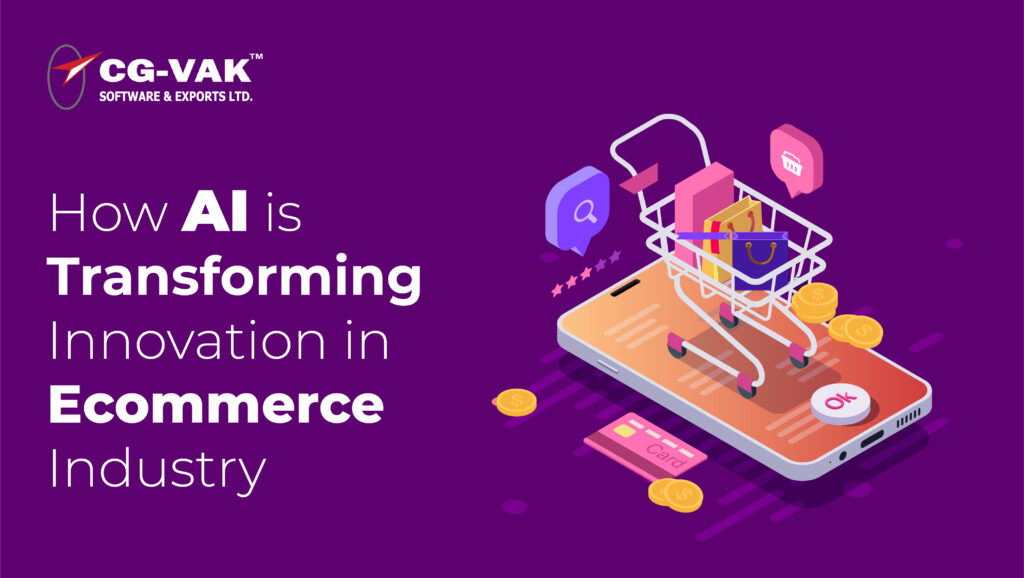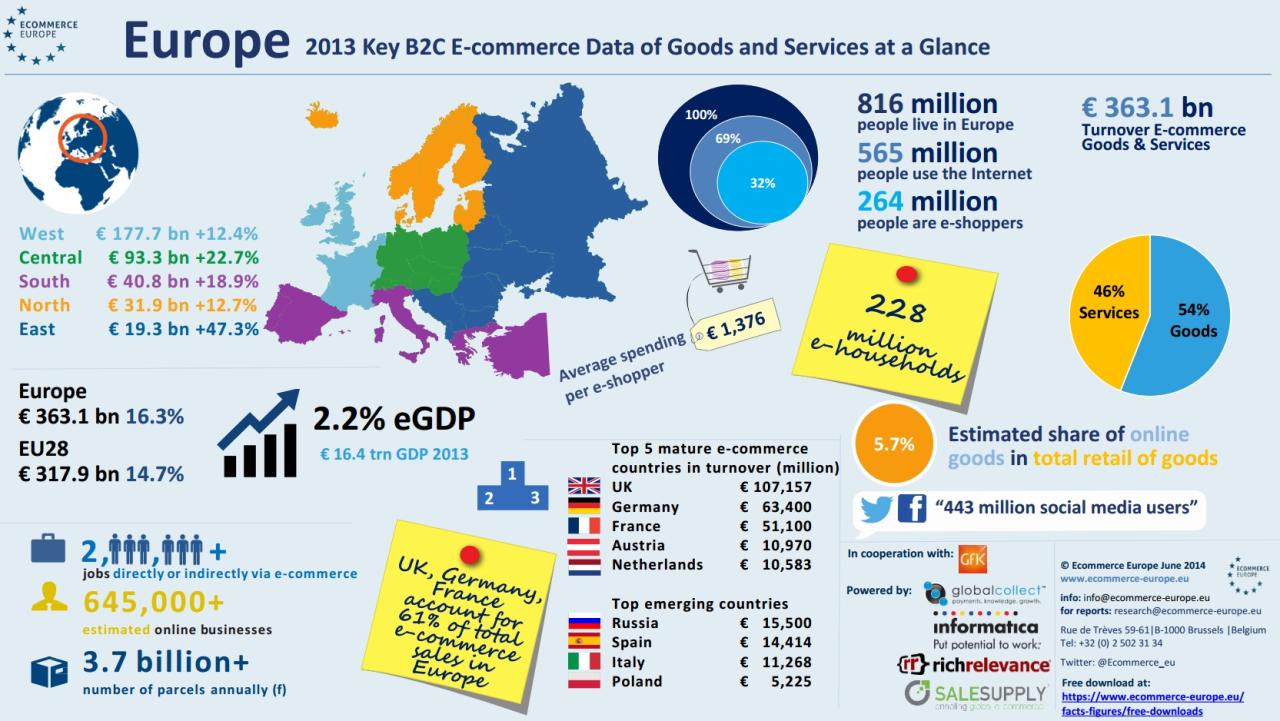Delving into the realm of AI and its impact on Ecommerce efficiency and experience, we uncover a fascinating landscape where technology reshapes the way we shop and interact with online platforms.
As we explore the various facets of AI integration in Ecommerce, a world of personalized experiences, efficient inventory management, enhanced customer service, and visual search awaits us.
How AI enhances personalized shopping experiences

AI plays a crucial role in enhancing personalized shopping experiences by leveraging algorithms to analyze customer behaviors and preferences, ultimately leading to tailored product recommendations and interactions.
AI-driven Product Recommendations
AI algorithms track and analyze customer browsing history, purchase patterns, and demographic information to generate personalized product recommendations. By understanding individual preferences and past interactions, AI can suggest relevant items that align with each customer's unique tastes and needs.
AI-powered Chatbots for Customer Interactions
AI-powered chatbots enable personalized customer interactions by providing instant assistance, answering queries, and offering recommendations based on individual preferences. These chatbots can simulate human-like conversations, creating a more engaging and personalized shopping experience for customers.
Impact on Customer Satisfaction and Loyalty
The implementation of AI-driven personalized shopping experiences has a significant impact on customer satisfaction and loyalty. By receiving tailored product recommendations and personalized interactions, customers feel valued and understood, leading to increased satisfaction and a higher likelihood of repeat purchases.
This personalized approach fosters customer loyalty and strengthens the relationship between the customer and the ecommerce platform.
AI-driven inventory management and demand forecasting

AI plays a crucial role in optimizing inventory levels and forecasting demand in the ecommerce industry. By leveraging historical data and trends, AI algorithms can provide valuable insights that help businesses make informed decisions.
Optimizing Inventory Levels
AI analyzes historical data on sales, customer behavior, and external factors to optimize inventory levels. By identifying patterns and trends, AI algorithms can predict which products are likely to sell well and which ones may need to be restocked. This helps businesses reduce overstock situations and minimize the risk of dead inventory.
Predicting Demand Fluctuations
AI is instrumental in predicting demand fluctuations by analyzing various factors such as seasonality, promotions, and customer preferences. By accurately forecasting demand, businesses can adjust their inventory levels accordingly, ensuring they have the right products available at the right time.
This not only improves customer satisfaction but also reduces the risk of stockouts.
Improving Supply Chain Efficiency
AI helps businesses streamline their supply chain operations by optimizing inventory levels and reducing unnecessary costs. By predicting demand accurately, businesses can minimize stockouts and overstock situations, leading to a more efficient supply chain. AI tools can also identify opportunities for cost savings and process improvements, ultimately enhancing overall operational efficiency.
Examples of AI Tools
There are several AI tools available that help businesses with inventory management and demand forecasting. For example, tools like IBM Watson Supply Chain use machine learning algorithms to analyze data and make real-time recommendations for inventory optimization. Another example is Blue Yonder, which offers AI-driven solutions for demand forecasting and replenishment planning.
These tools enable businesses to reduce costs, improve customer satisfaction, and stay competitive in the fast-paced ecommerce landscape
AI-powered customer service and support
AI-powered customer service is revolutionizing the way businesses interact with their customers. By utilizing AI chatbots, companies can provide instant responses to customer queries, resulting in enhanced efficiency and improved customer experience.One of the major benefits of AI in customer service is its ability to handle a large volume of queries simultaneously, ensuring that customers receive prompt and accurate responses.
This not only saves time for both customers and service agents but also increases customer satisfaction levels.
Integration of AI with CRM systems
AI integration with Customer Relationship Management (CRM) systems has enabled businesses to streamline their customer support processes. By utilizing AI algorithms to analyze customer data, businesses can gain valuable insights into customer behavior and preferences. This allows companies to personalize their interactions with customers, leading to a more tailored and effective customer support experience.
AI for visual search and product recommendations
AI technologies have revolutionized the way users search for products and receive recommendations on ecommerce platforms. By leveraging advanced algorithms, AI enables visual search capabilities and offers personalized product suggestions based on individual preferences.
Visual Search Capabilities
AI algorithms empower visual search on ecommerce platforms by analyzing images uploaded by users. These algorithms can identify patterns, colors, shapes, and other visual elements in the images to match them with relevant products in the inventory. For example, users can now simply upload a picture of a dress they like and find similar options available for purchase on the platform.
Product Recommendations
AI algorithms also play a crucial role in providing personalized product recommendations to users. By analyzing user behavior, purchase history, and preferences, AI can recommend products that are more likely to resonate with individual customers. These recommendations are often based on collaborative filtering, content-based filtering, or hybrid models to ensure accuracy and relevance.
Impact on User Experience
The integration of visual search and personalized product recommendations significantly enhances the overall user experience on ecommerce platforms. Users can easily find products they like without the need for text-based searches, making the shopping experience more intuitive and efficient. Additionally, personalized recommendations increase the likelihood of users discovering new products they may not have found otherwise, leading to higher customer satisfaction and engagement.
Last Point

In conclusion, the fusion of AI and Ecommerce heralds a new era of seamless shopping experiences, optimized operations, and satisfied customers. Embracing AI technologies paves the way for businesses to thrive in a dynamic digital landscape where efficiency and customer-centricity reign supreme.
Helpful Answers
How does AI enhance personalized shopping experiences?
AI algorithms analyze customer behaviors to offer tailored product recommendations based on individual preferences and browsing history.
What role does AI play in inventory management and demand forecasting?
AI optimizes inventory levels by analyzing data patterns, predicts demand fluctuations, and helps businesses reduce overstock or understock situations.
How is AI transforming customer service and support?
AI chatbots provide instant responses, handle customer queries efficiently, and integrate with CRM systems to enhance support processes.
What are the benefits of AI for visual search and product recommendations?
AI enables visual search capabilities on ecommerce platforms, analyzes images for relevant product recommendations, and enhances user experience.




